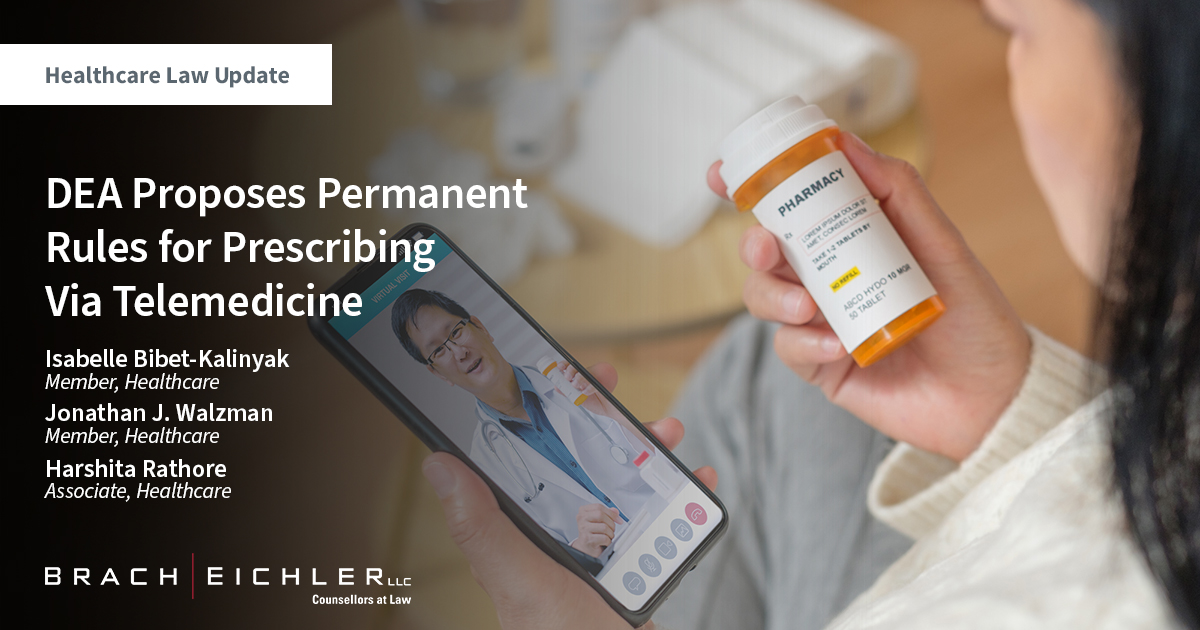DEA Proposes Permanent Rules for Prescribing Via Telemedicine

3/30/2023
The Drug Enforcement Administration (DEA) recently announced that it is proposing rules that will make permanent certain regulations that were enacted in response to the COVID pandemic allowing providers certain flexibilities in prescribing controlled substances via telehealth, which are set to expire when the COVID-19 public health emergency ends in May of this year. The new regulations also include certain safeguards to prevent abuse. Along with the proposed rules, the DEA also issued a chart to help practitioners determine when a telemedicine prescription is appropriate, a list of some common controlled substances, and an illustration of various telemedicine consultation scenarios. The proposed rules would not affect telemedicine consultations that do not involve prescribing controlled medications or where the practitioner has previously conducted an in-person examination of the patient.
Under the proposed rules, telehealth providers would no longer be able to prescribe Schedule II controlled substances (which include Adderall, oxycodone, Ritalin, and Vicodin) or most Schedule III-V narcotics without an in-person evaluation. The new rules would allow practitioners to prescribe up to a 30-day supply of buprenorphine and non-narcotic Schedule III-V drugs











